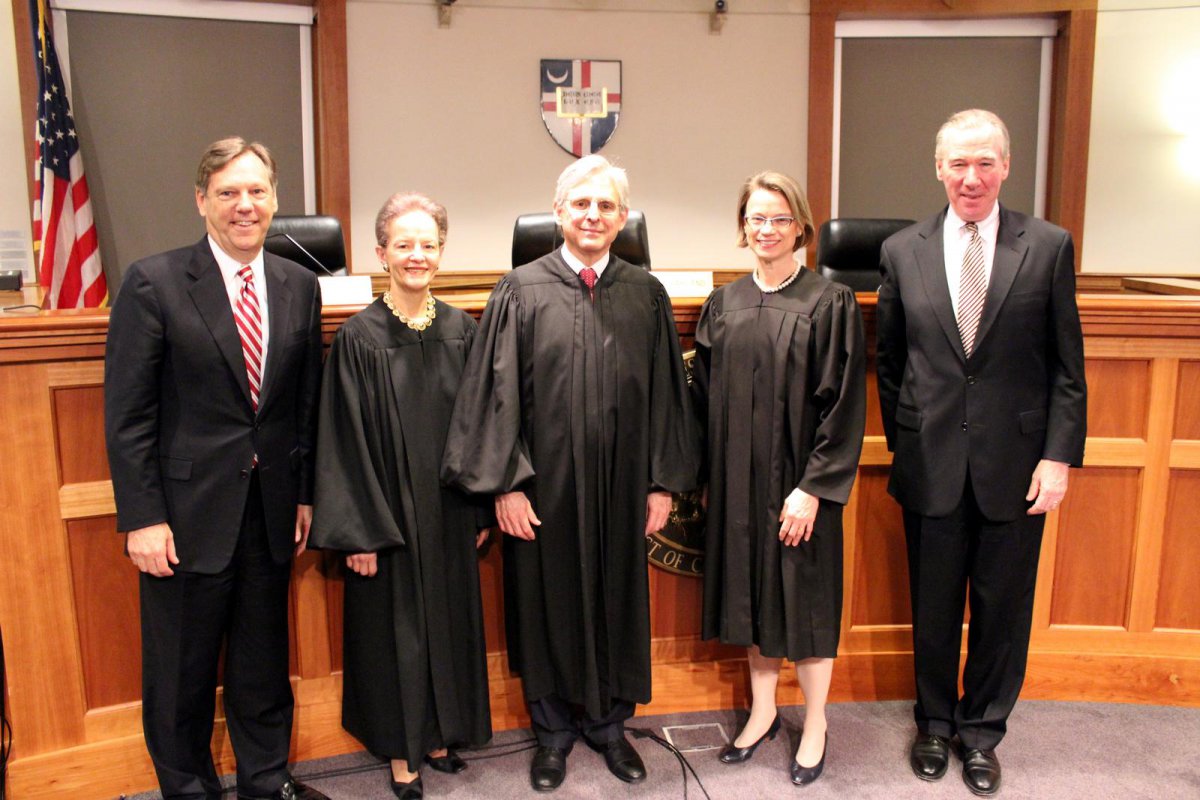
L-R: Daniel F. Attridge, dean, Columbus School of Law; Judge Judith Rogers, Chief Judge Merrick Garland, and Judge Cornelia Pillard, United States Court of Appeals District of Columbia Circuit; and John Garvey, president of The Catholic University of America.
The United States Court of Appeals District of Columbia Circuit considered oral arguments in three cases on its docket at Catholic University's Columbus School of Law on March 19, providing fortunate law students a rare close up look at how a federal appeals court conducts its business.
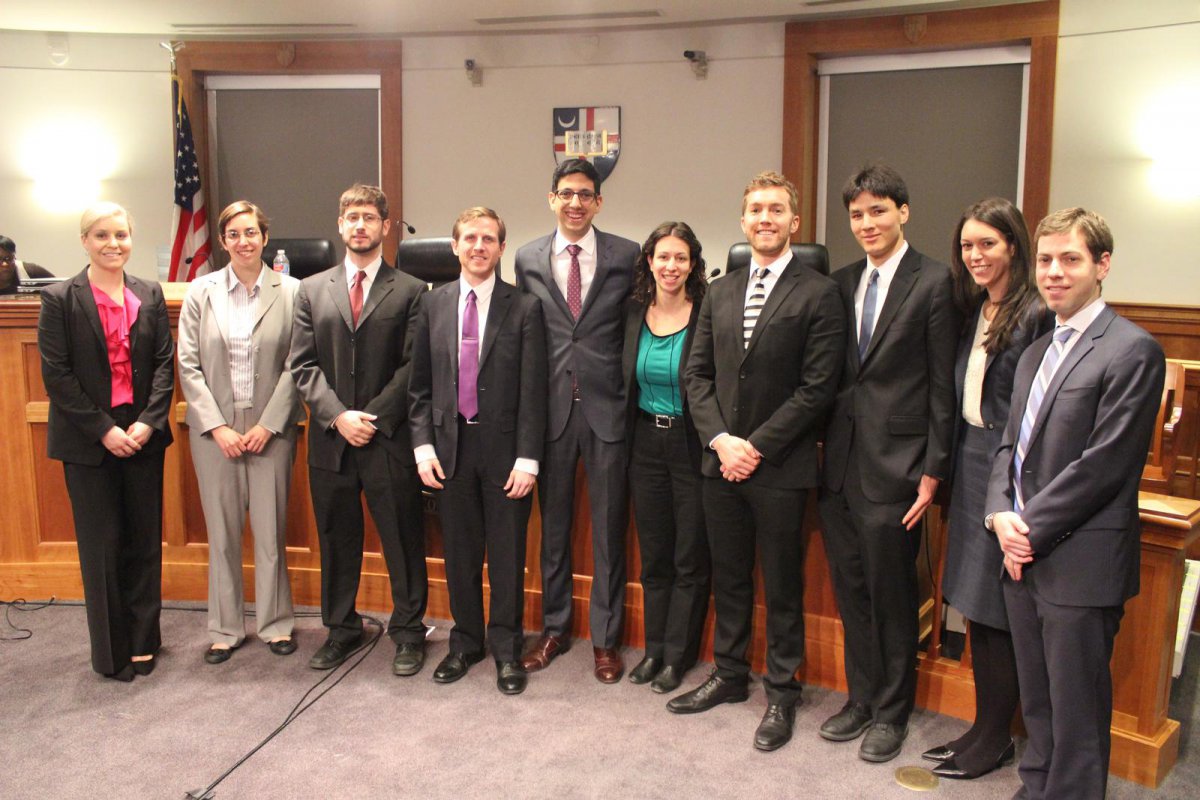
The law school's Slowinski Courtroom, used most often as a teaching venue, was in service as the real thing and packed full as the judges, counsel, clerks (at left), stenographers and other court personnel dispensed with their caseload in under three hours. Once in a great while, the Court hears cases at area law schools for the educational benefits it offers to students, and to enhance public understanding of the role of the courts in the nation's constitutional framework. Its visit to CUA Law was only the third time in recent memory that the Court has conducted a live session outside of its usual location in downtown Washington. The U.S. Marshal's Service handled security, checking the IDs of all courtroom visitors and reminding guests that audio and video recording devices were strictly prohibited.
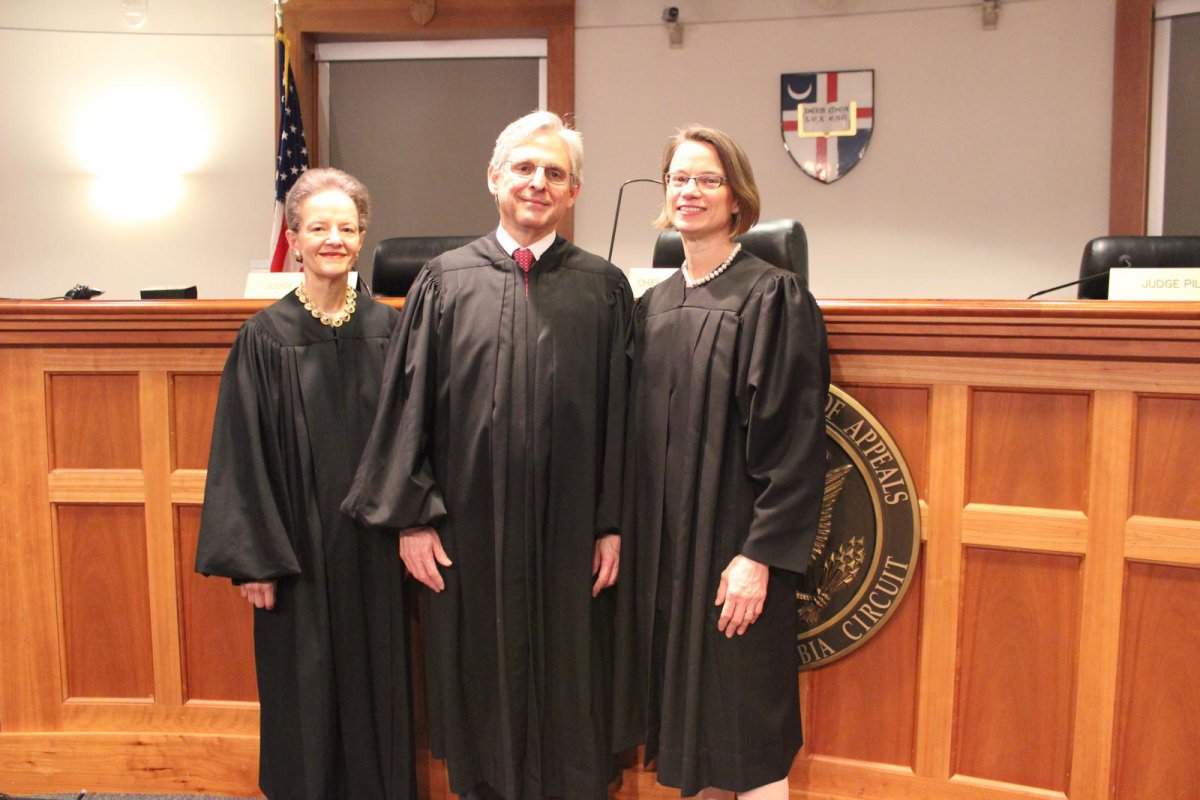
Chief Judge Merrick Garland and judges Judith Rogers and Cornelia Pillard heard arguments in Baumann v. District of Columbia, a police whistleblower case; United States v Kaufman, a sentencing challenge; and Edwards v. Commissioner of Internal Revenue Service, a tax case. A reception, open to students and attended by the judges, was held following the conclusion of oral arguments in the three cases.
Kristopher Baumann v. The District of Columbia, 09-1189 (CKK)
Former D.C. Police Union Chairman Kristopher Baumann had released to the media portions of a 2009 audiotape made of a conversation between members of the Metropolitan Police Department's Emergency Response Team as they dealt with a dangerous situation involving a shootout. Baumann claims that in response, he was retaliated against by D.C. Police Chief Cathy Lanier and others. He sued, claiming the release of the tape was protected speech under the DC Whistleblower Protection Act. A district court ruled against Baumann. Among the questions facing the DC Circuit Court: Did the District Court err in ruling that the government's interest in promoting the efficiency of public service outweighed Chairman Baumann's interest in speaking on matters of public concern? USA v. Paul F. Kaufman, 14-3041
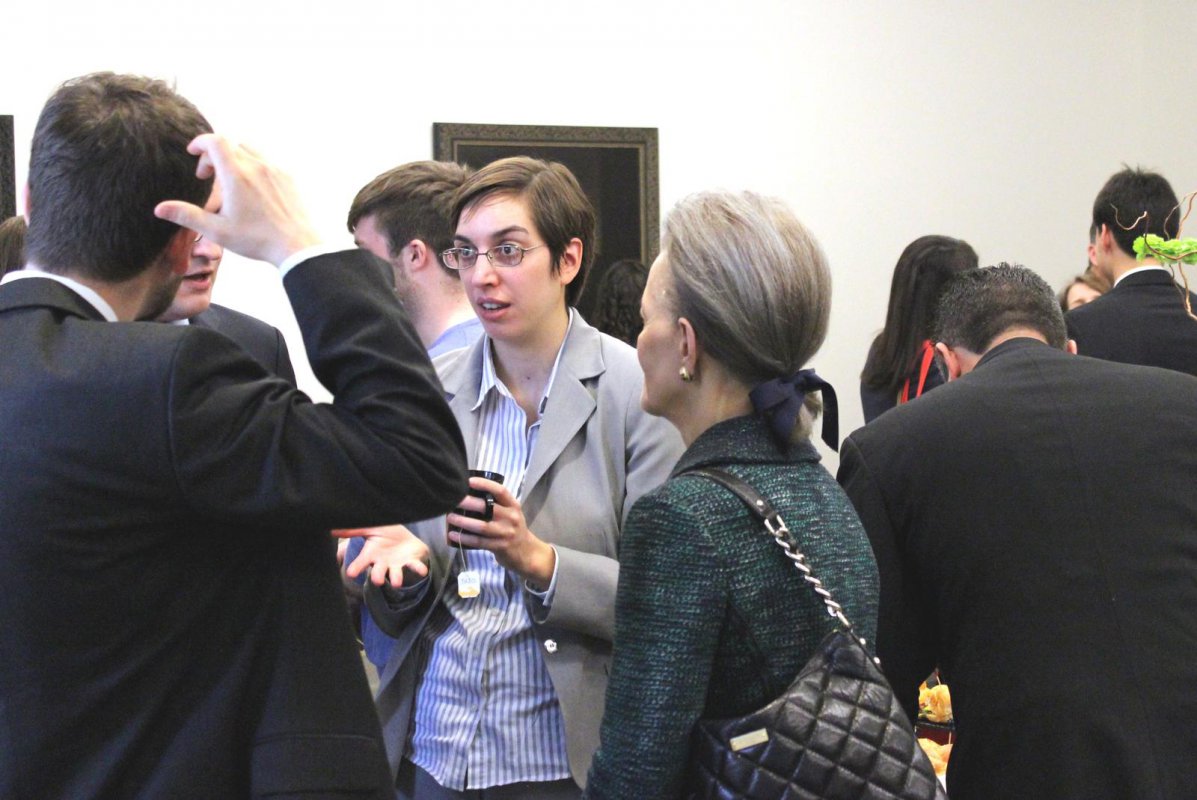
A former chief technology officer, Kaufman pled guilty to embezzling more than $150,000 from a non-profit for jewelry, cable bills, and other personal expenses. He was convicted and sentenced in 2014. As part of his plea agreement, Kaufman agreed to pay restitution and forfeiture money to the non-profit he stole from. The amount of restitution and forfeiture was set by the court, which rejected his reasoning that the amount he would pay back should be offset by the fair market value of work that he purportedly performed. The question before the DC Circuit Court was: "Whether the lower court erred in refusing to allow credit for work which benefitted the victim against the loss it claimed in its calculation of the proper sentencing guideline range and properly considered the factors set forth in Title 18 §3553(a) in reaching its sentencing decision?" Lisa A. Edwards v. Commissioner of Internal Revenue
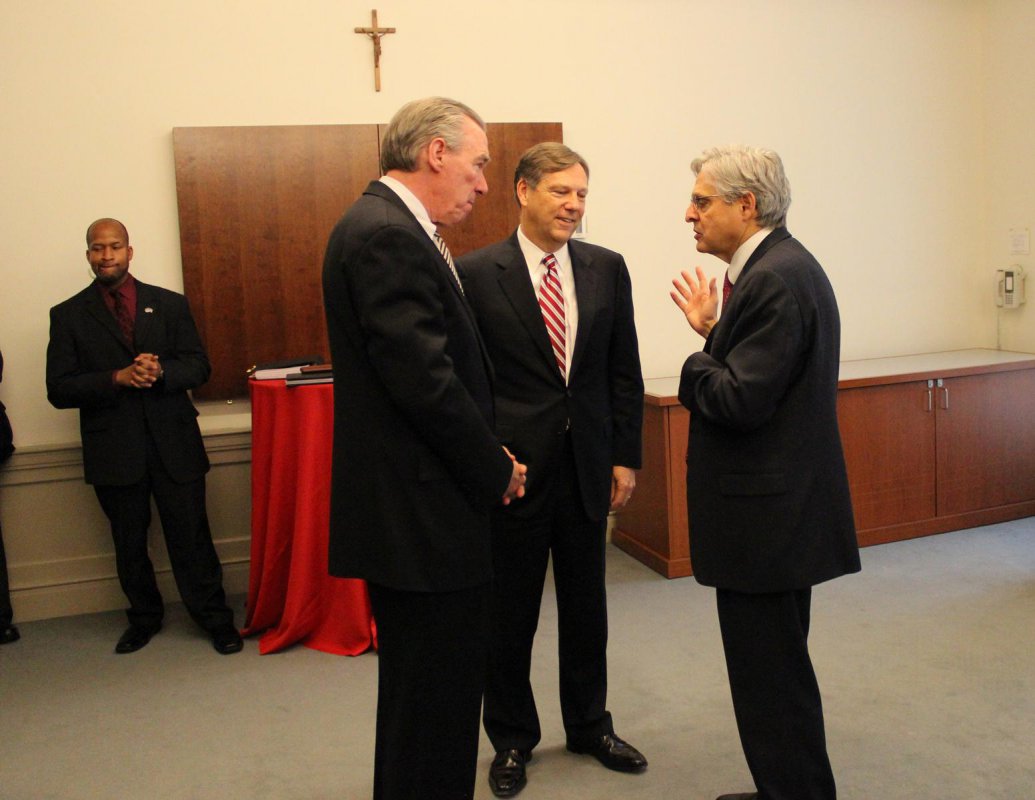
Lisa A. Edwards and her husband filed a U.S. Tax Court petition concerning the 2007 and 2008 tax years, claiming the IRS violated their rights to due process of law. The couple claimed they were never mailed deficiency notices as mandated by law even as the IRS confiscated their wages and property. In response, the IRS filed a motion to dismiss the taxpayers' petition because it was filed late. The taxpayers won their motion to dismiss, then filed for an Award of Reasonable Administrative and Litigation Costs. The attempt failed as the Tax Court dismissed the case for lack of jurisdiction without stating why. Since the judge did not state the grounds for dismissal, the IRS took the position that it was not barred from pursuing collection enforcement actions against the taxpayers and it seized more of their assets. Among the issues considered by the DC Circuit: Whether the judge is required to comply with established precedent set by the Tax Court and state the grounds for the dismissal for lack of jurisdiction since the grounds have legal significance to determine whether the taxpayers were afforded their statutory rights to due process of law and their petition was merely filed late or the IRS' tax assessments and levies are illegal pursuant to IRC § 6213(a) because no deficiency notices were ever created or mailed to them.
